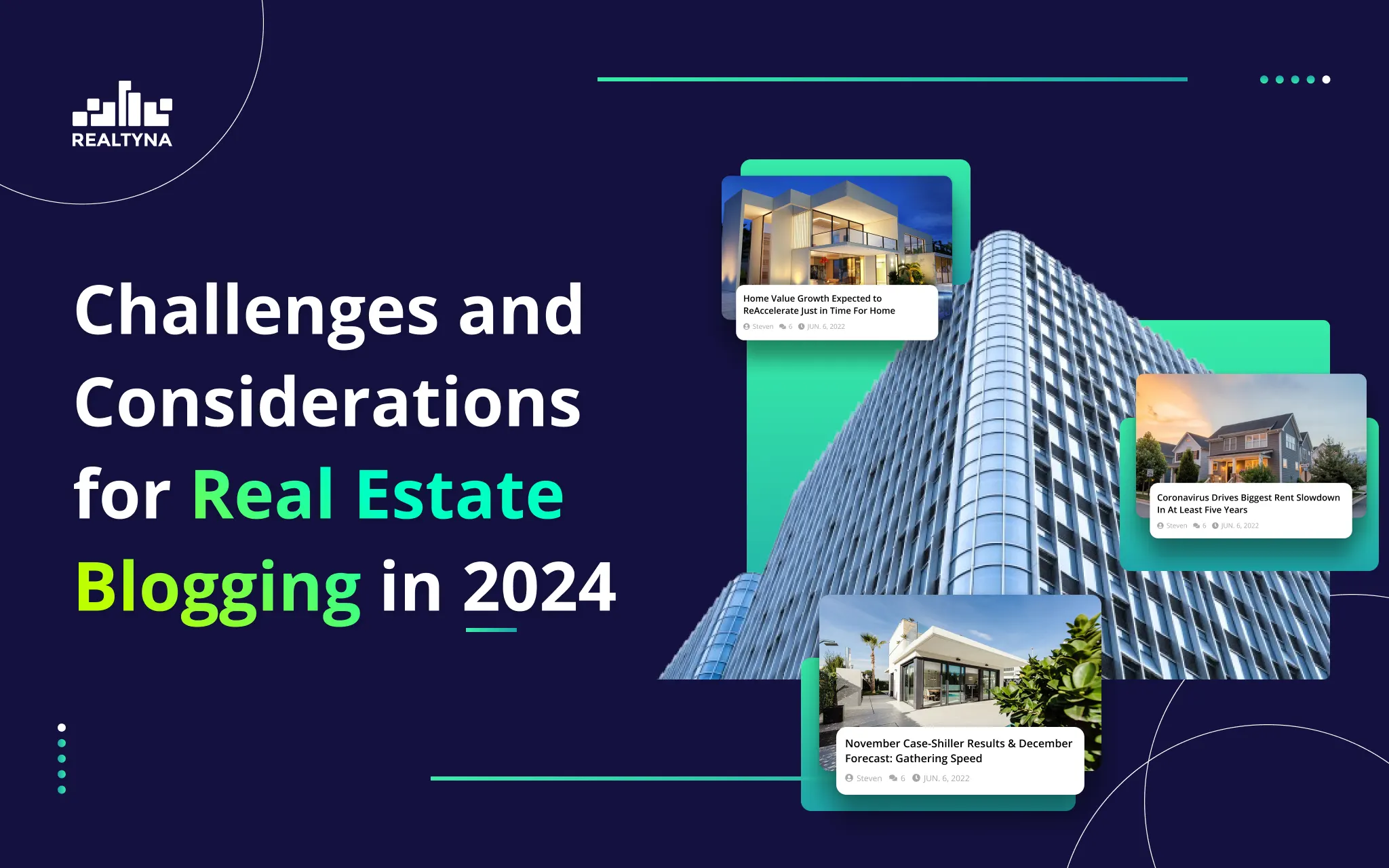
Should Real Estate Websites Publish Blog Posts In 2024
You’ve likely asked yourself if publishing blog posts on your website is worth the effort. With countless tasks demanding your time, you want to be sure blogging provides real value before committing resources.
In this article, we’ll examine the pros and cons of real estate blogging so you can make an informed decision.
Key factors to consider are SEO benefits, lead generation, brand-building, and producing high-quality content.
Weighing these elements objectively lets you determine if blogging aligns with your 2024 business goals or if your time is better spent on other initiatives.
You’ll also find actionable tips to maximize blogging success should you move forward. Arm yourself with the insights needed to optimize your online presence.
The Benefits of Real Estate Blogging
Increase Visibility and Build Authority
A consistent blogging strategy helps establish you and your brokerage as an authority in the local real estate market. Publishing useful content on trends in the industry, neighborhood profiles, and real estate tips helps build your credibility and visibility. As you publish more content, your site will also rank higher in search engines like Google, making it easier to find potential clients.
Engage Your Audience
A real estate blog allows you to actively engage with your audience by providing value to them. You can share details about new listings, changes in the market, mortgage rates, and more. Readers will appreciate the information and see you as a helpful resource.
Improve Lead Generation
By publishing targeted content for your ideal clients, you give them a reason to visit your site, opt-in to your email list, or contact you directly. For example, if you specialize in luxury real estate, blog posts highlighting new high-end listings or the benefits of working with a luxury real estate agent could generate interest from affluent homebuyers. Calls-to-action within your posts, like offering a free property valuation or market report in exchange for contact details, are easy to capture blog readers’ leads.
Boost SEO and Increase Traffic
Fresh, high-quality content is one of the best ways to improve your search engine optimization and drive more organic traffic to your site.
Your blog posts, especially if focused on keywords that your target clients search, will help search engines understand what your site is about and rank you higher in results.
The more you publish, the bigger impact it can have. Over time, your older posts will drive new visitors as they rank for more keywords and terms. With an SEO-optimized real estate blog, you can build a steady stream of organic traffic and leads.
Challenges and Considerations for Real Estate Blogging in 2024

Keeping Content Fresh and Relevant
By 2024, real estate websites that have been publishing blog posts for years may struggle with keeping content fresh while also balancing evergreen topics. To overcome this challenge, real estate websites should focus on trends in the industry and issues currently affecting homebuyers and sellers.
Optimizing for Voice Search
As voice assistants and smart speakers become more widely used, real estate websites need to optimize blog posts for voice searches. This means using conversational language, natural phrasing of questions, and terms that people would naturally say aloud. For example, “How much does an average home cost in Denver?” rather than “What is the median list price of residential real estate in the Denver metro area?”
Creating Multimedia Content
The majority of blog content in 2024 will incorporate visual media like photos, infographics, and video. Real estate blogs should include listing photos, neighborhood photos, statistics on home prices and sales represented visually, and video walkthroughs of properties. Videos in particular are useful for showcasing what makes a city, neighborhood, or development attractive to potential residents.
How Often to Publish Real Estate Blog Posts
Publishing blog posts on your website is an important strategy to boost your search engine optimization (SEO) and engage potential clients.
However, determining the ideal frequency to publish can be challenging. Publishing too often may overwhelm your readers and diminish post quality while publishing too infrequently will not generate enough traffic or leads.
Once Per Week
For most real estate websites, publishing one blog post per week is a good place to start. This schedule allows you to build content consistently without inundating readers. Focus on publishing posts that provide value to readers, such as neighborhood guides (Also you can have neighborhood listings on your website with our neighborhood add-on), market reports, home tips, or real estate news.
Biweekly or Monthly
If weekly posts are too frequent for your team to handle while maintaining post quality, consider a biweekly or monthly schedule. While less frequent posting may result in slightly lower traffic, the trade-off can be higher quality, more in-depth posts. For example, you may publish neighborhood deep dives, annual market forecasts, or home design trend reports every month.
As we come to the end of this article, it is clear that real estate websites have much to gain from publishing blog posts.
The SEO benefits alone make it a valuable endeavor. But beyond rankings, blogs allow you to position yourself as an authority, nurture leads, and drive traffic.
The key is to post consistently with useful, relevant content. Approach blogging as a long-term strategy and be patient.
Don’t expect overnight results. With time and effort, you will see your blog and business grow.
The work you put in now will pay off for years to come. So take the first step – start your real estate blog today. You have so much knowledge to share, and an audience waiting to hear from you.
Also, don’t neglect to read our complete guide on real estate SEO, don’t!!!!


Sorry, the comment form is closed at this time.